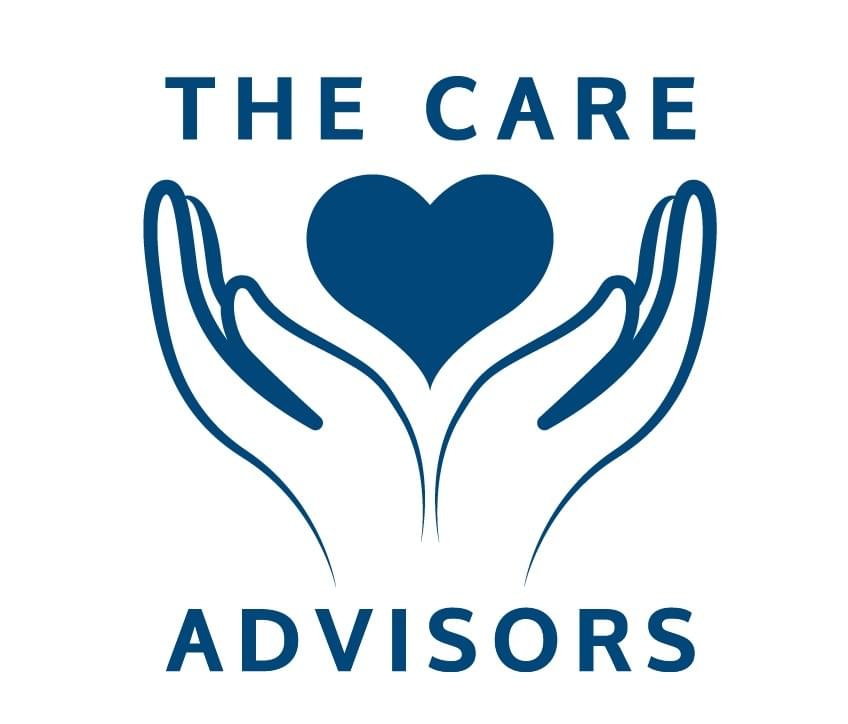
SPEAK WITH A CARE ADVISOR
CALL (888)-303 7088
Medicare and Medicaid recipients can now receive extra help! Get assistance towards medications, groceries and more included with OTC(Over-The-Counter) benefits!
Monthly allowances may also be used for transportation and even certain medical equipment.
To see if you qualify, call us at (888) 303-7088 or fill out our quick form and we'll contact you!
Discover How to Apply for an OTC Card Online for Free—Get Your Benefits Today!
OTC (Over-The-Counter) cards are a game-changer in healthcare, providing users with monthly or quarterly allowances to buy essential health items. They offer unparalleled convenience and offer various wellness products, medications, and health materials to fit one’s individual needs. This empowerment shifts health management towards a more proactive approach. Our guide delves into obtaining these cards, identifying accepting supermarkets and stores, and understanding eligible products. Explore how to maximize the benefits of OTC cards for your health and wellness through this insightful blog post.

What are OTC Cards?
OTC (Over-The-Counter) cards revolutionize healthcare by giving monthly or quarterly funds to purchase essential health products. These cards empower users, offering the freedom to select from medications, wellness items, and healthcare materials, promoting a proactive approach to health management. This guide covers how to apply for OTC cards, where they're accepted, including supermarkets and stores, and details on the eligible products. It's designed to help you maximize the benefits of these cards, ensuring you can maintain your health with ease and autonomy. Dive into this blog post to unlock the full potential of OTC cards for your wellness journey.
Different Types of OTC Cards
It offers varied options to cater to individual healthcare needs. Here is the different types of OTC cards:
Insurance-Provided OTC Cards: A cornerstone of many health insurance packages, these OTC cards are offered as a supplementary benefit, enabling policyholders to freely purchase essential healthcare and wellness products. They bridge the gap between prescription needs and general health maintenance, ensuring policyholders have a convenient, cost-effective means to stay healthy.
Government Program OTC Cards: Specifically designed for participants of government-assisted programs such as Medicare and Medicaid, these cards aim to support those in vulnerable demographics, including seniors and low-income families. By facilitating access to necessary over-the-counter healthcare products, these cards play a critical role in promoting public health and well-being.
Retailer-Specific OTC Cards: Tailored for exclusive use at particular pharmacies or health product retailers, these cards enhance customer loyalty while ensuring consumers have direct access to a wide array of healthcare products. They often come with special offers or discounts, making healthcare purchases more affordable.
Each type of OTC card serves a unique purpose, from broadening healthcare access to offering financial relief on essential products. Choosing the right OTC card can significantly impact your healthcare spending and overall wellness strategy.
How to Apply For OTC Cards
Securing an OTC card can streamline your healthcare product purchases. Follow these steps to apply:
Determine Eligibility: Check with your healthcare provider or insurance to see if you qualify for an OTC card.
Choose Your Application Method:
Online: Visit the official website of your insurance provider or the OTC card program. This method is typically the fastest.
Phone: Call the customer service number provided by your insurance or OTC card program for guided assistance.
Mail: Some programs allow applications via mail. Request an application form and send it back with the required information.
Gather Necessary Documents: Be prepared with your healthcare insurance information, personal identification, and any specific health care provider documentation if required.
Mind the Deadlines: Pay attention to any enrollment periods or deadlines to ensure your application is timely.
Applying for an OTC card is a straightforward process that can significantly benefit your healthcare management. Each method offers its advantages, so choose the one that best fits your needs and availability.
Call (888)303-7088 to see what you're eligible for!
Completing Your OTC Application Form Accurately
OTC application form is a key step towards accessing essential healthcare products. Here's how to ensure your application is completed effectively:
Form Components: Typically, the application will request personal information (such as name and address), insurance details, and specific health requirements. Understanding each section is crucial for a successful submission.
Accuracy is Key: Accuracy cannot be overstated. Confirm all details, particularly your insurance ID and contact information, to avoid any delays in processing your application.
Helpful Tips: Maintain clarity in your handwriting or digital entries. If any section is confusing, don't hesitate to contact the card provider's customer service for clarification—this proactive approach can prevent misunderstandings.
Supporting Documents: Be prepared to attach additional documentation if requested, which may include a valid ID or a physician’s recommendation, to strengthen your application.
Approach the application with attention to detail and patience, ensuring that every piece of information reflects your current status and needs. This meticulousness will facilitate a smoother processing of your OTC card application, bringing you closer to accessing valuable healthcare products.
Who Qualifies for an OTC Card
Exploring the eligibility for an OTC (Over-the-Counter) card can be straightforward with the right guidance. We're committed to helping you understand and meet the necessary criteria:
Eligibility Criteria: Generally, eligibility is determined by your healthcare plan. Many insurance providers, including Medicare Advantage and some Medicare/Medicaid plans, offer OTC cards as a benefit to their members.
Qualifying Plans: Look for health insurance plans that emphasize preventive care and wellness benefits. These plans often include OTC cards to encourage the purchase of health-related products without out-of-pocket costs.
Specific Requirements: Eligibility may depend on factors like age, plan type, or specific health conditions. Some plans require enrollment in a specific tier or offer OTC benefits as part of a package aimed at chronic disease management or senior care.
At The Care Advisors, we specialize in helping individuals navigate these requirements to access the benefits they're entitled to. Whether you're unsure about your plan's offerings or need assistance with the application process, our expertise is just a conversation away.

The Benefits of OTC Cards: Enhancing Your Healthcare Experience
OTC (Over-the-Counter) cards stand as a beacon of convenience and cost efficiency in the healthcare landscape. Here’s how these cards can transform your approach to health and wellness:
Ease of Access: With an OTC card, the world of healthcare products opens up, allowing you to acquire a wide range of items—from vitamins to first-aid supplies—directly and effortlessly. This bypasses the traditional prescription barrier, putting the power of choice directly in your hands.
Financial Advantages: One of the most compelling benefits is the significant cost savings. OTC cards cover the expense of eligible healthcare products, reducing out-of-pocket costs and making essential health items more accessible to those who need them most.
Simplified Health Management: The convenience factor of OTC cards cannot be overstated. They simplify the process of maintaining a healthy lifestyle,
Tips for Using OTC Cards at Supermarkets
To ensure you make the most out of your OTC card at supermarkets, consider these practical tips:
Know Your Eligibility: Before shopping, familiarize yourself with the list of eligible products covered by your OTC card. This list can often be found on your provider's website or in the information packet received with your card.
Identify Eligible Products: Many supermarkets have designated sections for OTC eligible items or labels on shelves indicating eligibility. Look for these cues or ask a store employee for guidance.
Understand Restrictions: Be aware that while OTC cards are widely accepted, there may be restrictions. Some products, despite being over-the-counter, may not qualify under your plan. Additionally, non-healthcare items, even in the pharmacy section, are typically not eligible for purchase with OTC cards.
Call (888) 303 7088 to check if you qualify for an OTC card today!
What Supermarkets Accept OTC Cards
Embracing the convenience of OTC (Over-the-Counter) cards, numerous supermarkets and retail chains have become pivotal in ensuring access to healthcare products is as seamless as possible. Here’s where you can use your OTC cards:
CVS
Walgreens
Duane Reade
Rite Aid
Dollar General
Family Dollar
Walmart
These establishments are renowned for their wide selection of eligible OTC products, from health supplements to first-aid essentials, ensuring you can find what you need when you need it.
Policies and Restrictions: While these retailers accept OTC cards, it's crucial to be aware of any store-specific policies or restrictions. For instance, some products may not be eligible under your OTC card benefits, or certain locations may have limitations on the range of products available.
OTC Product Availability: The availability of OTC products can vary by location, but these chains strive to stock a comprehensive range of items suitable for OTC card purchases. To ensure a smooth shopping experience, it’s advisable to check with your local store or the retailer’s website for the most current information regarding eligible products and any specific store policies.
What Products Can I Buy with My OTC Card?
Your OTC (Over-the-Counter) card is super useful for buying lots of health-related stuff without a prescription. Here's what you can get:
Health and Wellness: Includes medicines for colds, allergies, and pain. Also, things like thermometers and blood pressure monitors.
Personal Care: Items such as toothpaste, shampoo, and first-aid supplies like bandages.
Healthy Foods: Some cards let you buy healthy foods too such as fruits, vegetables and lean meats.
Remember, you can't use your OTC card for everything in the store. It's mainly for health and wellness products. If you're not sure if something can be bought with your OTC card, check the guide that came with your card or ask at the store.
Food List of What You Can Get with OTC Card
Using your OTC (Over-the-Counter) card isn't just about health products; it can also cover nutritious food items. Here is the lists of food:
Baby Food: Nutritional needs for the little ones, including formula and baby cereals.Healthy Cereals: Start your day right with whole grain and low-sugar options.
Snacks: Look for wholesome choices like nuts, seeds, and dried fruits that fuel your body.
Beverages: Includes nutritional shakes and drinks that offer vitamins and minerals.
This list highlights just a few categories; your card might cover more, depending on your provider’s rules. Always check your OTC card’s guide or website for the full list of eligible foods to ensure you’re making the most of your benefits.
Tips for Maximizing OTC Card Benefits
An OTC (Over-the-Counter) card is a powerful tool in managing both your health and budget. To make the most out of it, consider these tips:
Stay Informed: Regularly check your card balance and the list of eligible items. Your provider's website or customer service can offer updates on any changes to eligible products or benefits.
Plan Your Purchases: Before you shop, make a list of necessary items to avoid impulse buys. Prioritize essentials like medications, health monitors, and first-aid supplies.
Track Expiration Dates: OTC card benefits may refresh each month or quarter. Use your funds before they expire to ensure you don't miss out on the full value of your benefits.
Explore All Categories: Beyond medications, your OTC card might cover health foods, personal care items, and even fitness equipment. Diversifying your purchases can enhance your overall wellness.Keep Receipts: Save your receipts for any purchases made with your OTC card. They can be helpful for tracking spending, returns, or addressing any discrepancies with your account.
Frequently Asked Questions and Answers about OTC Cards
How do I shop for products online with my OTC card?
You can view and purchase approved OTC products on specific platforms like the Healthy Benefits Plus website. For payment, use your OTC card details during checkout.
Are the items in the enclosed catalog the only things I can buy with my OTC card?
No, the catalog features popular items, but you can find a broader selection online or at participating stores.
Can I order products by phone?
Yes, you can order by phone using your OTC card details and the product IDs you wish to purchase.
Do I pay for shipping costs?
No, shipping costs are covered by your health plan when you use your OTC benefits online or by phone.
Do I pay sales tax on purchases made with my OTC card?
Yes, applicable sales tax will be added to your order at checkout.
What do I need at checkout?
In-store, present your OTC card or the mobile app. For online or phone orders, you'll need your card number and security code.
When will I receive my OTC card?
New members typically receive their card in the mail 2-3 weeks after their coverage starts.
How do I activate my OTC card?
You can activate your card by calling a specific number provided by your health plan or online at a designated activation website.
What if I need to return an item?Returns are subject to each store's policies. For items ordered by phone, contact the provider directly for return instructions.
Does my quarterly OTC allowance roll over?
Typically, any unused allowance does not roll over to the next quarter, so it's wise to use your benefits within the given period
Step into a world where managing your health and wellness is not just easy but exhilarating. with The Care Advisors as your guide. Envision a lifestyle where essential health products are effortlessly within your reach, thanks to the savvy use of your OTC card. We're here to demystify the process, offering clear, expert guidance to help you make the most of your OTC benefits. Let us show you how to transform the chore of health management into a delightful part of your daily life. With us, your journey towards a healthier, more vibrant life is not just a dream—it's a journey we embark on together, making every step an opportunity for wellness. Call 888 303 7088 to see if you qualify for an OTC card today!
What Can You Buy at Walmart with an OTC Card?
At Walmart, you can use your OTC card to purchase eligible over-the-counter health products such as:
Pain relievers (e.g., ibuprofen, acetaminophen)
Cold and flu medications
Vitamins and dietary supplements
First aid supplies (e.g., bandages, antiseptics)
Personal care items like thermometers and blood pressure monitors
These items can be found in the Food and OTC section on Walmart's website.
Can I Buy Shampoo and Conditioner with an OTC Card?
Generally, personal care items like shampoo and conditioner are not eligible for purchase with an OTC card. OTC cards typically cover products used to treat medical conditions, such as pain relievers or first aid supplies. However, some health plans may offer flexibility, so it's advisable to check your specific plan's guidelines.
Does Costco Accept OTC Cards?
Costco accepts OTC cards at its pharmacy department, but only for eligible over-the-counter medications. You must be a Costco member to access the pharmacy, and a PIN may be required at checkout. OTC cards are not accepted for other store purchases.
Does OTC Card Cover Hair Treatments?
OTC cards typically do not cover hair treatments unless they are deemed medically necessary. For example, hair growth medications like minoxidil may be eligible with a Letter of Medical Necessity (LMN) from your healthcare provider. Always consult your plan's guidelines for specific coverage details.
Does OTC Card Cover Minoxidil?
Minoxidil, an over-the-counter hair growth medication, is generally not eligible for OTC card purchases unless accompanied by a Letter of Medical Necessity (LMN) from your doctor. This documentation is required to confirm its medical purpose.
Does ShopRite Accept OTC Cards?
Yes, ShopRite accepts OTC cards in-store for eligible items. You can use your OTC benefit card to pay for approved over-the-counter health-related items, such as medications and wellness products.
Can I Buy Laundry Detergent with My OTC Card?
Typically, no. OTC cards are intended for health-related products. Items like laundry detergent are generally not eligible unless specifically included in your plan's approved list. Always refer to your plan's guidelines for eligible items.
Can I Buy Paper Towels with My OTC Card?
No, paper towels are not eligible for purchase with an OTC card. OTC cards are designed for health-related items, and household products like paper towels are typically not covered.
Can I Buy Toilet Tissue with My OTC Card at Walmart?
No, toilet tissue is not eligible for purchase with an OTC card at Walmart. OTC cards are intended for health-related products, and items like toilet tissue are generally not covered.
Can I Buy Meat with My OTC Card at Walmart?
No, meat is not eligible for purchase with an OTC card at Walmart. OTC cards are meant for health-related items, and food products like meat are typically not covered.
When Will My OTC Card Be Reloaded?
Can I Buy Toilet Paper with My OTC Card Online?
No, toilet paper is not eligible for purchase with an OTC card online. OTC cards are intended for health-related products, and items like toilet paper are generally not covered.
Does BJ’s Accept OTC Cards?
BJ’s Wholesale Club does not accept OTC cards. While BJ’s accepts a wide range of payment methods, including EBT for eligible food items, OTC cards are not among the accepted forms of payment.
Does Meijer Accept OTC Cards?
Meijer does accept OTC cards for eligible over-the-counter health products. However, certain items, such as pseudoephedrine, may require purchase through the pharmacy and may not be eligible for OTC card use.
Does Amazon Accept OTC Cards?
Amazon does not accept OTC cards for purchases. While Amazon has partnered with UnitedHealthcare to fulfill online OTC orders starting in 2024, OTC cards are not accepted directly on Amazon's platform.
Does ALDI Accept OTC Cards?
ALDI does not accept OTC cards. Despite some online information suggesting otherwise, customer experiences indicate that ALDI does not process OTC card transactions.
Does H Mart Accept OTC Cards?
H Mart does not accept OTC cards. While some locations may accept EBT for eligible food items, OTC cards are not accepted at H Mart stores.
Do Wegmans Accept OTC Cards?
Wegmans does not accept OTC cards. Although Wegmans accepts EBT for eligible food items, OTC cards are not among the accepted payment methods.
Medicare and Medicaid recipients can now receive extra help! Get assistance towards medications, groceries and more included with OTC(Over-The-Counter) benefits!
Monthly allowances may also be used for transportation and even certain medical equipment.
To see if you qualify, call us at (888) 303-7088 or fill out our quick form and we'll contact you!

Benefits of CDPAP vs. Traditional Homecare
-You choose who provides your care - Anyone except a spouse can be chosen as a care giver.
- Increased scope of practice - Unlike Traditional Homecare, CDPAP caregivers are allowed to perform skilled tasks such as medication administration and wound care.
- Flexible schedule - You and your caregiver set a schedule that suits you!
See What Families Are Saying!
Anais P. Testimonial
Tyesha W. Testimonial
Silvia R. Testimonial
We service all 62 counties of New York State for this program. Pay rates $21.09/hr in NYC.
Ready to get started?
Call (718) 866-3046 or fill out the form above and we'll contact you!
Get PAID to care for family & friends with the freedom to choose your own schedule!
